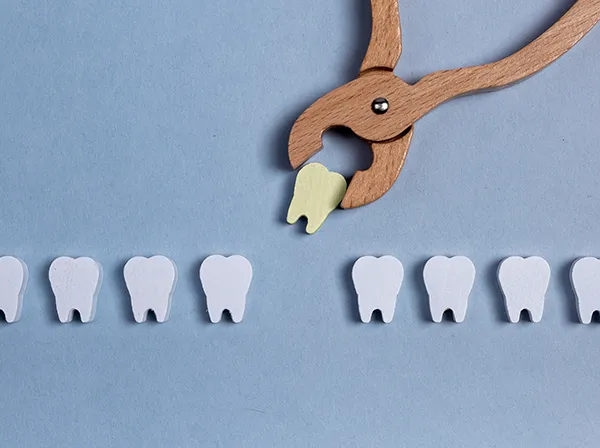 Tooth extraction, a routine dental procedure, serves as a crucial intervention to alleviate pain, combat infection, and address issues like dental overcrowding by removing a tooth.
Tooth extraction, a routine dental procedure, serves as a crucial intervention to alleviate pain, combat infection, and address issues like dental overcrowding by removing a tooth.
With approximately 20 million teeth extracted annually in the United States alone, Rolling Plains Dentistry plays a pivotal role in meeting the high demand for these essential services. Utilizing advanced dental technology and techniques, we ensure safe and effective teeth removal and replacement, prioritizing our patients' well-being throughout the process.
Understanding Tooth Extraction
Tooth extraction, commonly referred to as pulling or removing a tooth, entails the complete removal of a tooth from its socket in the jawbone.
Reasons for Tooth Extraction
While preserving natural teeth is always the primary goal, certain situations may necessitate tooth extraction. Severe tooth decay, fractures, impacted teeth, overcrowding, and advanced gum disease are among the common reasons needed for tooth removal.
Types of Tooth Extraction
There are two primary types of dental extractions: simple and surgical. Simple extractions, performed on visible teeth, involve sedation and specialized instruments like elevators and forceps. Surgical extractions are more complex, often necessitating oral surgery under general anesthesia. Surgical extractions are often needed for impacted or fractured teeth.
Signs and Situations Requiring Tooth Extraction
The following are the most common reasons for tooth extraction:
| • | Severe Tooth Decay: Cavities can lead to pain, infection, and tooth loss, necessitating extraction. |
| • | Irreparable Damage or Trauma: Injuries from accidents or habits like teeth grinding may require extraction. |
| • | Overcrowding or Impacted Teeth: Crowded or misaligned teeth may be extracted to alleviate discomfort and facilitate proper alignment. |
The Process of Tooth Extraction
Whether performed in a dental office or hospital clinic, tooth extraction involves meticulous steps to ensure patient comfort and successful outcomes. Local anesthesia is administered, and the tooth is carefully loosened and extracted using specialized instruments. Surgical extractions may require additional measures like incisions and bone removal.
Precautions and Post-Extraction Care
Following extraction, proper aftercare is essential for optimal healing and pain management. Patients should adhere to specific dietary restrictions, avoid certain activities, and maintain oral hygiene to minimize discomfort and complications from occurring.
Benefits of Tooth Extraction
While not ideal, as we always try to save the tooth first, tooth extraction offers immediate pain relief and prevents the spread of infection when present, promoting overall dental health.
Schedule a Consultation
At Rolling Plains Dentistry, we conduct tooth extractions with precision and care, prioritizing patient comfort and well-being. For inquiries about our services, visit one of our locations near you, or contact us at 940-663-5353 to schedule an appointment. Your dental health is our priority, and we're here to support you every step of the way.


